ELSWOOD HIGH TURNING POINT
MEDIA RELEASE
After seven months partnering with The SmilingOne Foundation, Cape Town school leadership pauses to rethink reactive disciplinary approaches.
Every tool in the discipline playbook has been tried at Elswood High School. Detention. Suspensions. Community service. Book confiscation. None of it works. Students keep disrupting. Teachers keep punishing. The cycle continues. Until now.
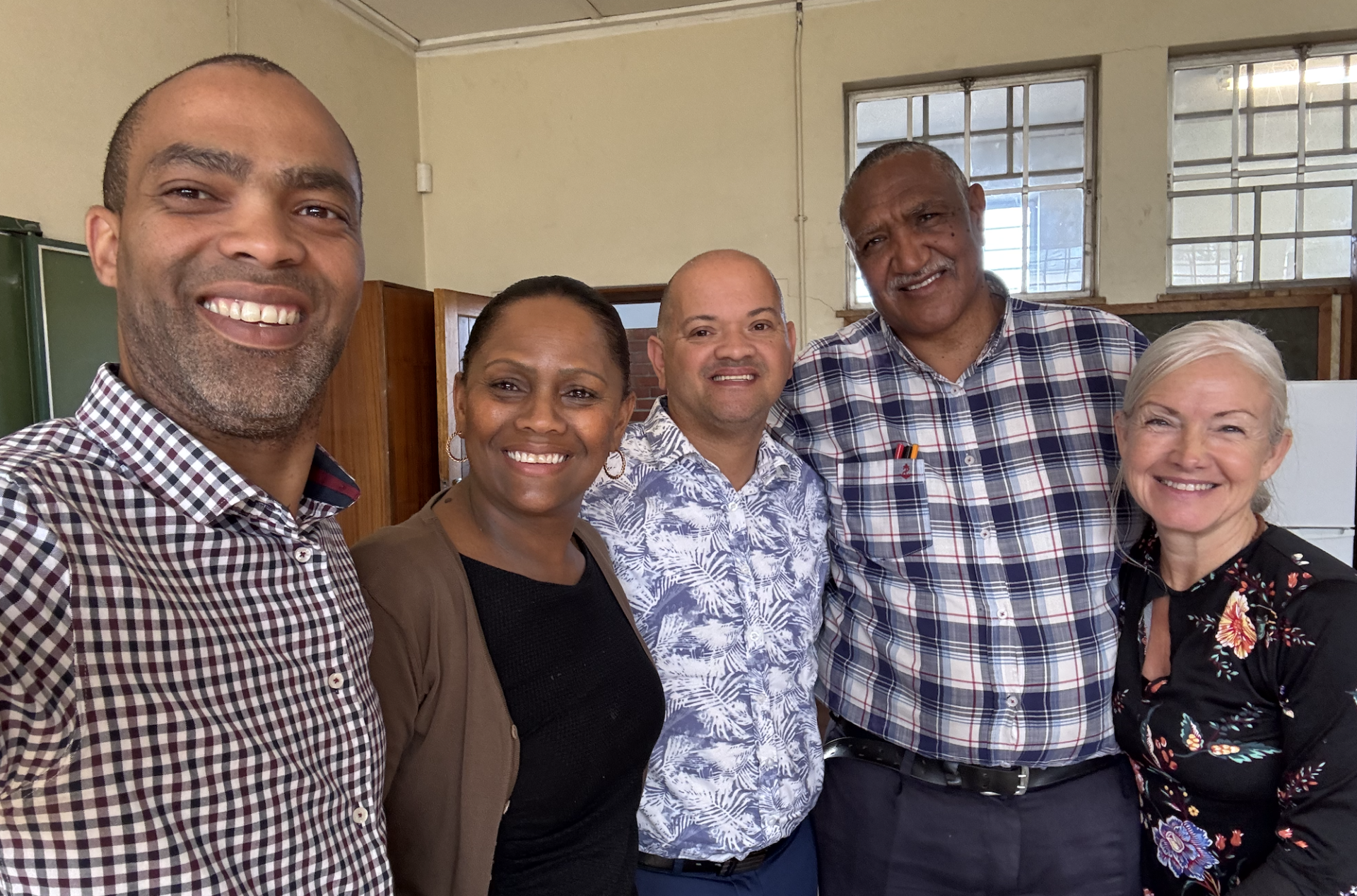
Seven months after partnering with The SmilingOne Foundation, Principal Mr. Kiewiet sat in a quarterly review meeting on November 4th and described something different:
It's not a declaration of transformation complete. It's a pause. A realisation. A willingness to try something different. And in a school system where reactive disciplinary approaches have dominated for decades, that pause is revolutionary.
The school, located in Elsies River - one of Cape Town's most affected communities - serves students navigating complex realities that most people only read about.
THE QUESTION BEHIND THE QUESTION
Ground Zero: Understanding a Level One Environment
Elsies River is one of Cape Town's most affected communities, where students navigate realities that shape every interaction:
- Gang violence and drugs: The area is dominated by territorial gang warfare with frequent shootings. Tik (methamphetamine) has devastated families. Some homes function as drug dens. Students know which routes are safe, which aren't, and that violence can erupt without warning.
- Food insecurity is real and consistent. Students arrive at school having not eaten, affecting concentration and behaviour. Families struggle with unemployment, uncertain if rent will be paid or if there will be food - this becomes the baseline students operate from.
- Violence as learned behaviour: In homes where stress is constant and coping mechanisms are limited, violence becomes the problem-solving tool. Students learn early: this is how conflict gets handled. Vulnerability gets punished. Softness gets exploited.
- Witnessing violence, losing family members to gang shootings or drug overdoses, living with the hyper-vigilance that survival requires - this creates layers of unprocessed trauma that students carry into classrooms.
SmilingOne's aim isn't to fix but to equip, helping students and teachers navigate their environment and become drivers of the change they want to see. Together, they co-create a healthier space, shifting into a Level Two reality: from chaos to calm, from reaction to reflection, from 'nobody cares' to 'I am seen' - a space where growth conversations can take place and potential can be unlocked.
STUDENTS SPEAK - ADULTS LISTEN DIFFERENTLY
SmilingOne's strategy works on two levels: casting a wide net through exposure classes, and offering a deep dive through the SmilingOne Club for those ready for more intensive support.
The breakthrough comes quietly. In the club, students make a discovery: they're not alone in their struggles. The isolation - the "nobody cares" feeling - begins to crack.
- 60% of club members maintain middle to high attendance.
- Two students achieved top attendance (14 sessions).
- Student leadership emerged organically. Blessing, a Grade 10 student, recruited seven friends - not because she was appointed, but because she believed in what she'd found.

Teachers: An Army of Support
Seven months of exposure classes have shifted how teachers see their role. It's no longer just about academics - making classroom space work requires something deeper.
WHAT COMES NEXT?
"Small shifts with big meaning" that represent "a positional change from where we were to now” - that’s how Principal Kiewiet describes what's emerging at Elswood. After witnessing SmilingOne's capacity for having these difficult conversations with students, school leadership is now considering a restorative approach rather than a punitive one. The question behind the question is starting to take root.
ABOUT THE SMILINGONE FOUNDATION
Since 2008, The SmilingOne Foundation has worked in some of South Africa's toughest environments. Its evidence-based methodology has been refined over 18 years and uniquely bridges prisons and schools: Change Agents mentored inside correctional centres return as relatable role models in schools, disrupting cycles of violence and disengagement. These rehabilitated men, who grew up in the same high-risk environments, walk next to youth as authentic guides who understand the reality students face.
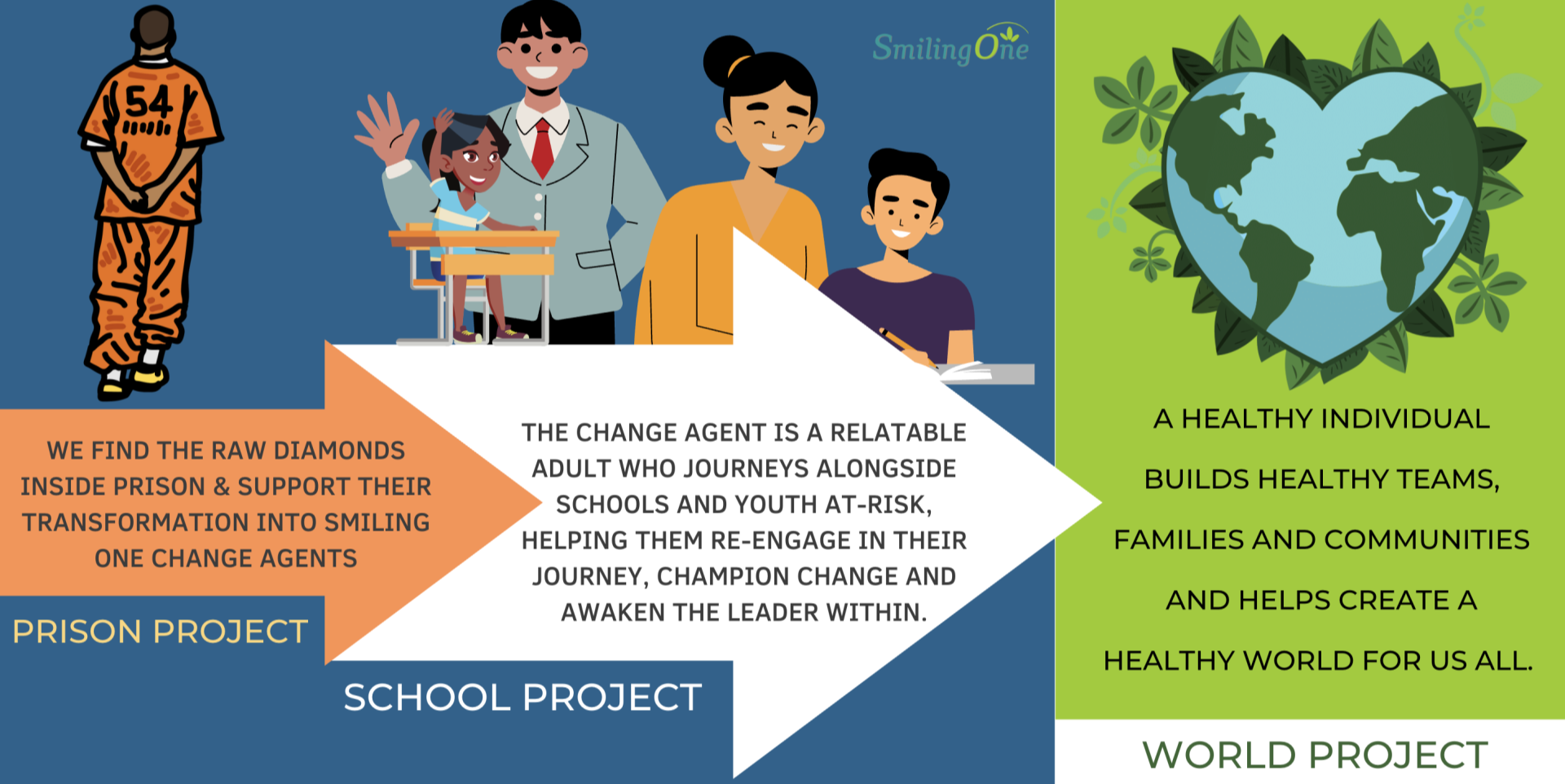
SmilingOne's six-year success at Ravensmead High (2019-2024), and ongoing work inside Brandvlei Maximum Prison, prove that transformation can be sustained and replicated when environments are healed. The work at Elswood High applies these lessons - bringing a proven approach to another community in need.
CONTACT
🌐 visit our website: www.circlesofchange.academy/sof
📩 Contact: Karina Andersen | karina@smilingone.com

Featured links
Connect with us
KEY OBJECTIVE 3:Support Family Relationships of learners who show high risk of dropping out
TRUST BUILD TO PARENT: We have on numerous occasions found that Families open up about personal Challenges. They allowed us into a personal space in family challenges during our house visits.
360 FEEDBACK ON STUDENTS | SPACE TO SHARE: It is essential for us to understand the Student through the eyes of Parents and GrandParents. Here we see what Challenges the Students are dealing with in the home environment. We provided a safe space for them to discuss issues that revolved around their kids.
SOUNDING BOARD FOR PARENTS: What was particularly interesting/important was the understanding that was built between SmilingOne and Parents. On many occasions Parents contacted us to ask for a visit and advice in regards to Challenges that the Parents were facing to understand the Child. This shows us increased involvement from the Parent to be a partner in the Childs/students education (inner/outer)
AGILE DURING LOCKDOWN: We always had a place to go and check on the Students (at home). Our Student session space was moved to their homes and it was the perfect place for the Parents to join in on sessions. The parent had the option to benefit and equip themselves to understand more about the student - normally those sessions would have taken place at school. So the pandemic really was a win in this regard.
SAFETY | MINDFULNESS IN HIGH RISK AREA: The Change Agent being mobile made it much easier for them to navigate around in the area to the Students' Houses. The area is not really safe - however it made a difference having a car. Also Franklin grew up in the area which meant he understood to be aware while moving around.
EVIDENCE ON IMPACT | PARENTS & STUDENTS TACKLE CHALLENGES BETTER: We experienced dramatic Changes in the parent/student relationships during this time. The Parents observed changes in the Students behaviours through first hand experience of how they dealt with the challenges in our sessions (Students and Parents present). The Parents and the Students are now equipped to tackle the identified Challenges differently
PARENT SUPPORT: There has been instances where Parents call upon the Change Agent to chat to the Student. There have been challenges that made some of the Students contemplate dropping out of school and Parents ask the Change Agent to speak to the Students. Parents also got involved and wanted to know how to handle certain situations when it came to challenges that the Students are facing.
DIRECT INSIGHT: By doing our House Visits - we had direct insight to the Learners and Families living conditions. Families shared insightful developments that is influencing the Learner. We had an opportunity to build a relationship with families based on the assistance and support for Learners which allowed us to see Learner background, Family structures, and financial circumstances. We also get to see hobbies, sports activities, and talents of the Learners outside the school environment.
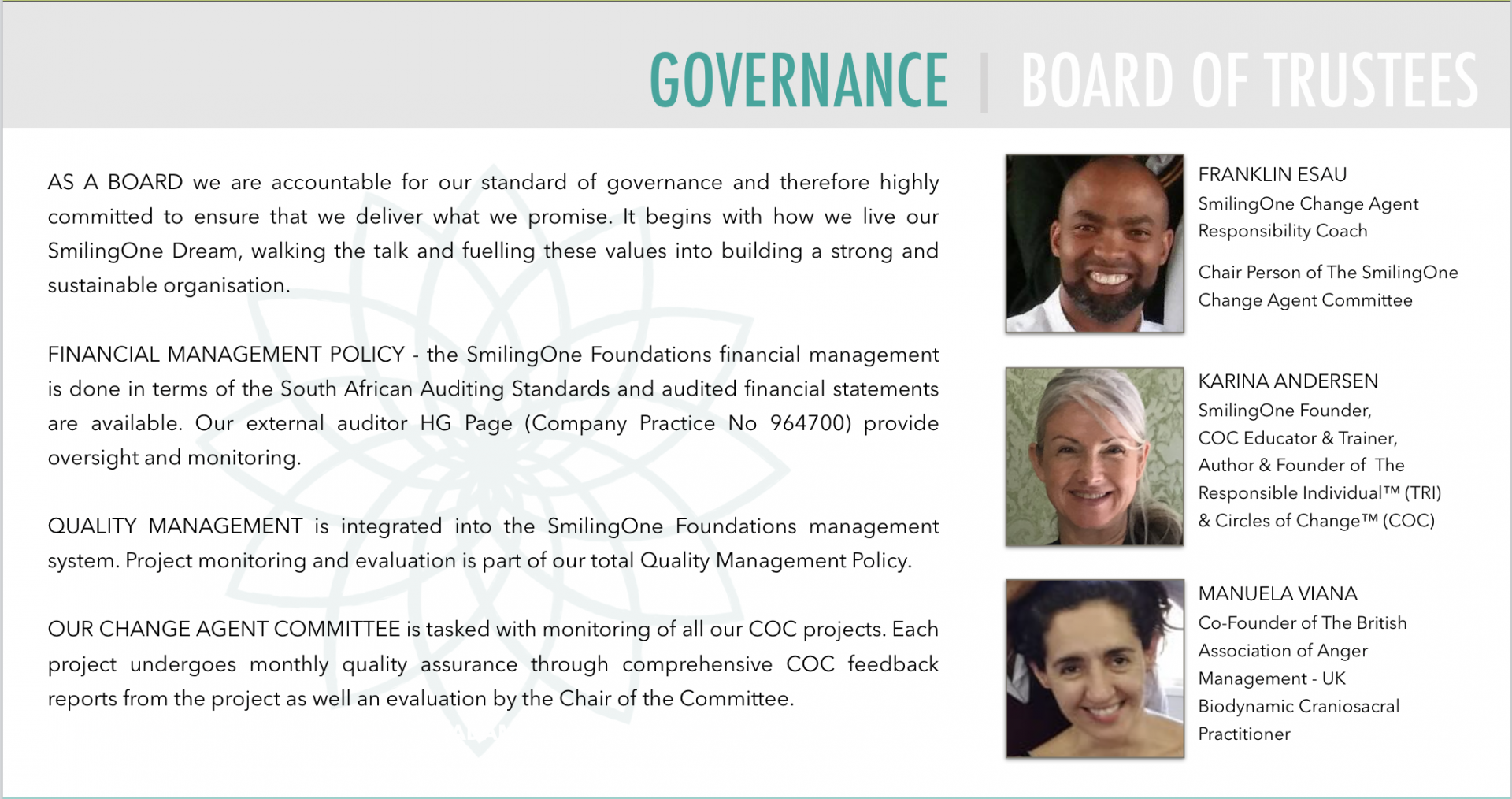
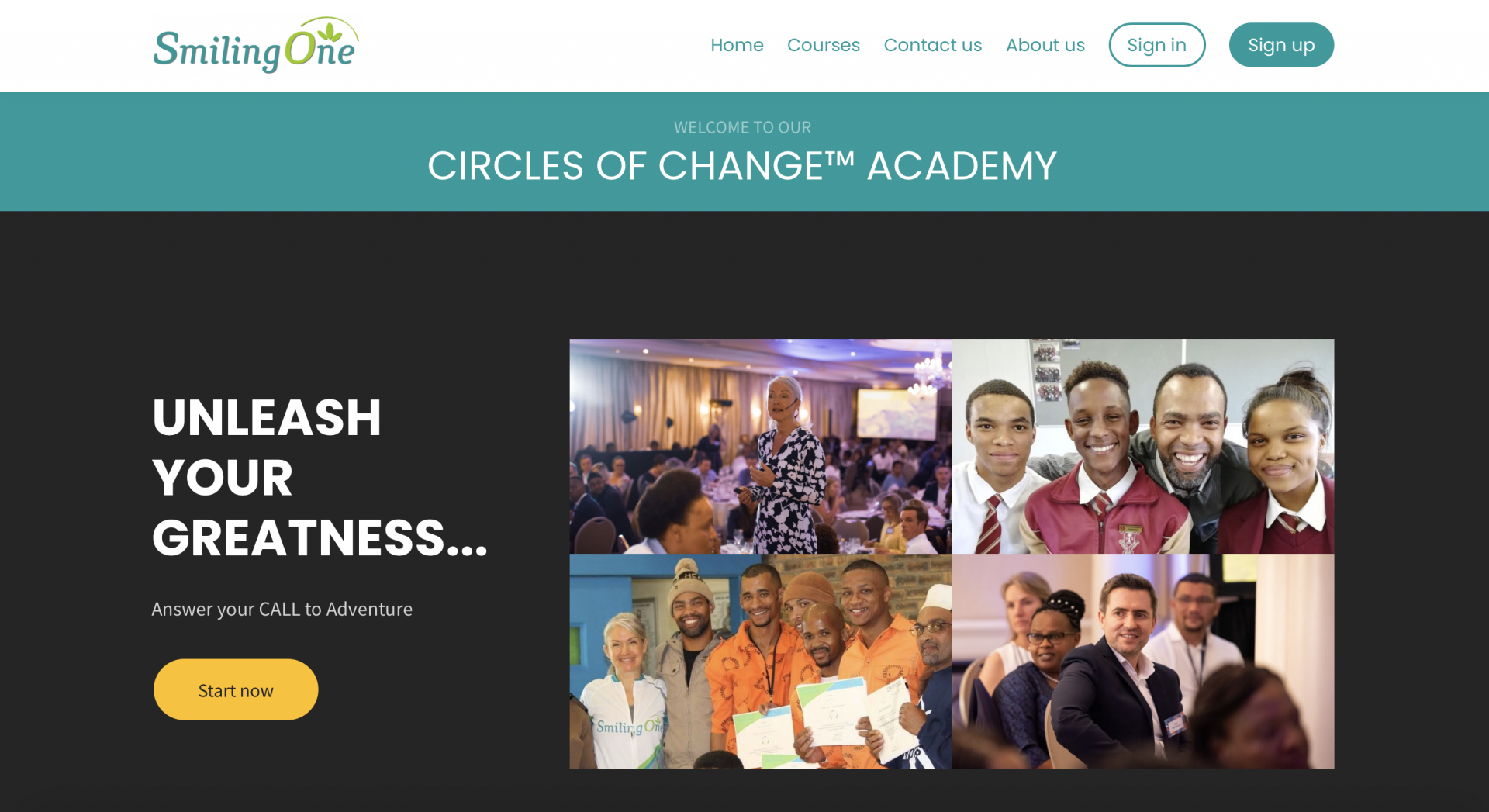
During the pandemic we intensified our efforts to bring all our teachings online with the aim to service both SOF beneficiaries as well as to reach a global audience.
The Academy plays an important role in our sustainability approach for SOF - 10% of all income on online programs (booked at full price) is donated towards youth/school & prison projects. We are committed to build a solid foundation from which we can ensure long-term project partnerships and continue to give our beneficiaries free access to all our values based leadership programs.
Our intervention in SA prisons is our flagship project and will benefit youth, families, communities on a large scale. Educating more Change Agents is KEY for a successful strategy. We aim to bring our Academy (via local intranets) into prisons across South Africa in the years to come to reach thousands of inmates.


KEY OBJECTIVE 1:Tackle learner disengagement by establishing a nurturing and relatable adult in a school to facilitate intensive personal development with learners
TRUSTED SPACE, RELATABLE ADULT, OPENING UP ABOUT CHALLENGES, SHARING EMOTION
- The Change Agent has been a trusted relatable Adult for the Students to come and share and explore their Challenges in groups and in one-on-one engagement sessions. Opening up can for many Students be daunting as they do not have someone to talk to, or trust in. We have seen Students fully engage in this space offered to them and using the Change Agents to hold space for sharing of challenges and deeper feelings.
- The one on one sessions are offered to our After School Club Students. It assists us to measure where they are at with understanding their tools, and what we must further build on. The Students appreciate both the group space and the personalised space.
- The one on one sessions has also been an alternative to Students that did not want to be part of the After School Club (a group process), yet found that The Responsible Individual was something they really needed to be a part of. We have 11 Exposure Students that make use of regular 1-on-1’s. Last year these Students were more drop-in’s - now they are consistent in the process.
- The venue that the school provided has been an exceptional space which Students identify with as the place of their development. It has been a safe space for interpersonal engagement for their development through The Responsible Individual and the gathering of Champions who are interested in changing their lives for positive Academic results.
- The Grade 12's took full advantage of the space we provided after they had been thrown into speed Studies with excessive academic classes due to COV19. Grade 12 students came to release and share their Challenges with us. We hosted sessions for them to identify the abnormal/intense school tasks as an opportunity. One-on-one sessions were hosted for Grade 12 students who felt that they needed to deepen their understanding of personal Challenges hindering them from focusing on school tasks. Lorenzo Jantjies - one of the Grade 12s - became a real Champion of Change this year - inviting his fellow mates to session. They realized they needed a more intensified approach to strengthen their toolkits. They brought their lunches to sessions and enjoyed a space to relax and have open dialogues.
STUDENTS EMBRACE THE SMILING ONE APPROACH, CONCEPTS/TOOLKIT & WAY OF ENGAGING
- Students are connecting with the Change Agent and the approach that SmilingOne uses. As time progresses we find that Students are becoming well known to the approach
- Students are becoming Champions of the program which sparks curiosity amongst their fellow students. This has really stood out in the year of the pandemic! We have seen many more students showing interest. The Champions are bringing other Students along with them to benefit from the trusted sharing and development space.
- We made graphic and colourful illustrations of the concepts and hanged them on the walls in the SmilingOne classroom, which sparked further interest of the Students. At first it was not easy for them to identify or relate to all the concepts, now it has become so much more tangible for them, easier to use - the visuals are greatly appreciated by the Students.
- Students who enrolled in our program the year before (while still in Grade 11) are now showing up more intensified as Grade 12’s in our program. We also receive great feedback from Grade 12 teachers on how one of our Champions is impacting his fellow Grade 12’s positively, bringing them with him to sessions (Lorenzo)
- We have seen students who last year experienced TRI through Exposure Classes to enrol in the program this year for support and then to be chosen for the Accelerator Program (a bridge between matric and their tertiary studies)
INSIGHT INTO DISENGAGEMENT | WE ARE EQUIPPED TO SUPPORT THEM
- Students development through the program is revealing to us different aspects of why the disengagement happens and why it is so important to address. We have been learning as much as the students have so we can better support them to navigate through their challenges. Disengagement often leads to drop-out of school which will severely impact their future and any possibility for a promising life and career.
- Students follow trends, what is popular amongst the youth.
- Students do not consult or ask advice which often leads them to make choices alone - going solo in their adventures.
- Students close down and are secretive about their feelings - suffering in silence
- Students prefer gangsterism over families, they are much easier accepted in the gangs than in their families. At home there is expectations. In gangs… what flows goes.
- Students regard the teachers almost as their parents - meaning someone they cannot easily share with - this is how they have framed it. Every adult is often perceived by students as a threat - as someone they cannot engage with. It makes it hard for them to open up and share. So they don’t accept the guidance and the teaching offered.
VIRTUAL SPACE DURING LOCKDOWN
- During lockdown we created a space for the Students to communicate with us and stay connected with the Change Agents. This allowed them to share about their Challenges and experiences with the changes that came with the lockdown.
- Old Students who were previously part of the process rejoined due to the Change Agents reaching out to them during the lockdown (via WhatsApp and phonically).
- We posted videos in the virtual space and shared daily inspiration. We had 3 Change Agents in intensified daily sharing to inspire and motivate the students.
- Our connection with Students never faded during time of Lockdown, on the contrary it increased. It wasn’t a usual thing to have the Change Agent so intensified in a virtual space, coming right into the home. It lead to the Change Agents being easily invited to house visits once lockdown was eased in June (activity 3).
- Partnership with the School and Teachers worked very well and was intensified during the Pandemic. We had access to the intercom system. Our sessions were announced via intercom. It was helpful instead of us going from class to class to remind Students. Teachers also reminded Students, nudging them to attend sessions.
- The Principals and Management was guiding us in Covid-19 safety strategies of the School as we reopened School. This added to the strength in togetherness as we keep nurturing our Partnership.
- We got a second classroom - one for the Students process and one for the Teachers process during the pandemic times to ensure no cross contamination, shows a strong Partnership - how willing they are to work hand-in-hand with us
It was such an awesome experience to see the Grade 12's Matriculants moving to the next step of life. As they prepare for their end exams.
We have had such a beautiful journey with them for the past 2 years - together we have learned some great lessons.
End the year of strong...
We celebrate your courage to be yourself and to stretch towards your dreams.
Write your awesome label here.
Write your awesome label here.
Write your awesome label here.
Write your awesome label here.
Write your awesome label here.
Write your awesome label here.
- enabling platforms in South African high risk environments
- a team of SmilingOne Change Agents
- our unique Awakened Leadership Approach - personal values based leadership programs - offered to our Students via our Circles of Change™ Academy
(1) The Responsible Individual™ (TRI)
(2) Wheel of Consciousness (WOC)
(3) Reclaim Your Power (RYP)
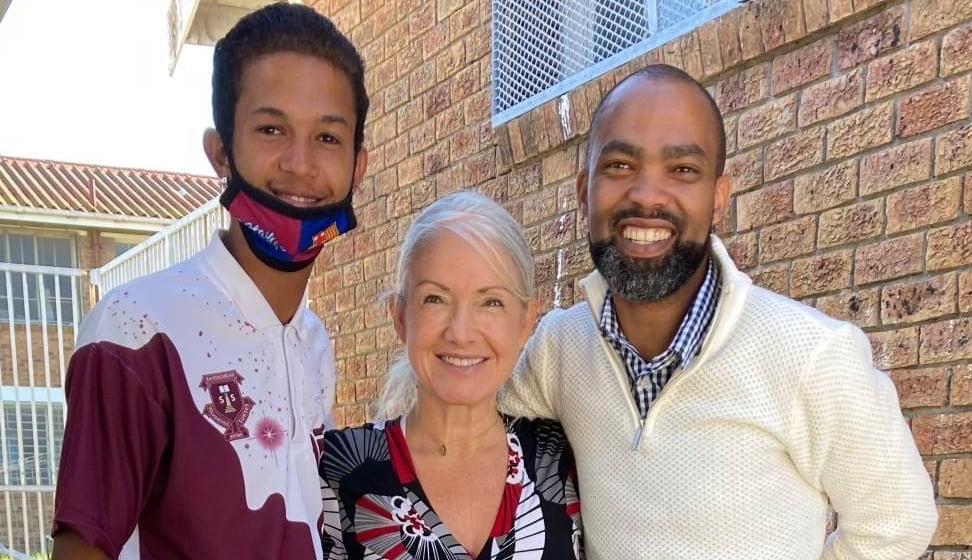
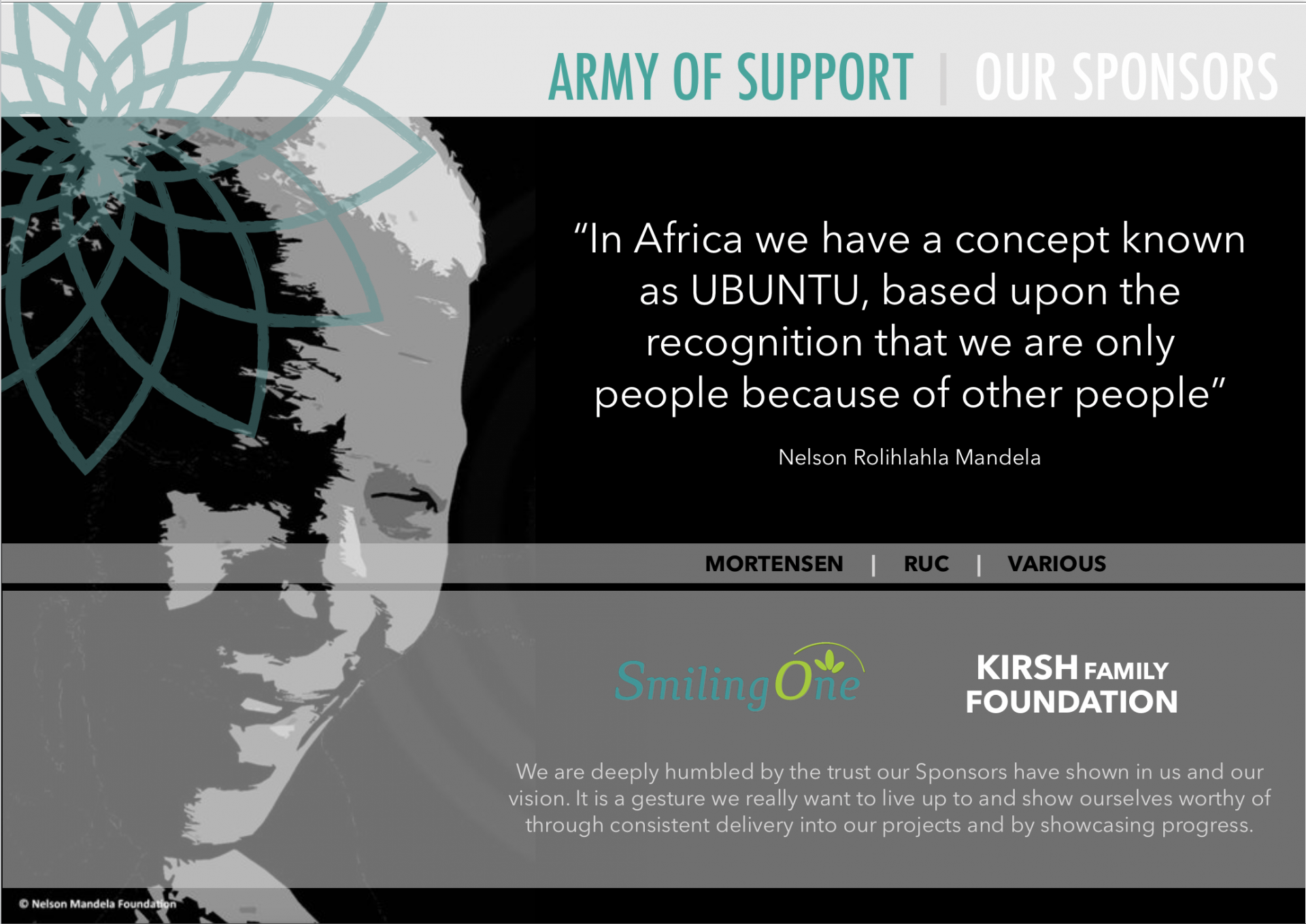
KEY OBJECTIVE 2:Improve school culture through light-touch open dialogues with learners
THE SMILING ONE CLUB SPACE HAS A MULTI PURPOSE - ALSO A SPACE FOR EXPOSURE & GATHERINGS:
- The school gave us a 2nd classroom this year (2020) which is a re-creation building and the possibilities of the space is endless.
- We had many Students keen to be in our space - mix of exposure students and intensified students in our project.
- We had warmth, laughter and depth in our space. Where Students can come and share anything that troubles them.
- We had many Students come and use the space to do Homework and extra curriculum activities. It was easier for them to seclude themselves from the busyness of school in the SmilingOne Club Space to focus on priorities at school.
- The SmilingOne Club is a real connection space for Students from Matric who used the space to connect with our sessions, during a time of much difficulties and pressure. We always make sure that we open the space for them to share with us.
- The SmilingOne Space is identified as a space where all Students can come for support and guidance. Students enjoy a quiet peaceful atmosphere to focus on extra school work. We have a little library to keep students busy reading - where they can borrow books from the space. The Matriculants have come to eat lunch in our space while having sessions at the same time.
OPEN DIALOGUE:
- We have built solid relationships with Students which has allowed for trust in the shared space
- The space is one of shared responsibility in regards to openness with the Students.
- Our enabling platform is established at the school and the students use it to share with us about everything. We have touched upon many issues that is challenging in the Students life. Students have trusted us with numerous issues and shared topics which we could address.
- We particularly made sure to understand which Changes and Challenges arrives in the school environment and bring it to the Exposure Classes for discussion. To learn and understand.
- Our meet and greet on school grounds with Students assists us in gaining familiarity. Which makes it easy for Students to come to us and where we can address topics which affect the Students, Teachers and the School.
- We are very lucky to be allowed in the Students and Families lives in the community through the open dialogue.
- We discover so much of their culture and school through their sharing.
- Students are communicating our The Responsible Individual language. It has been amazing to be involved in such a discovery.
- Challenging issues are easily talked about. Teachers call us to assist them with open dialogue, addressing issues in an efficient way. There has been several instances where behaviour issues has been addressed - calling upon SmilingOne for assistance and enrolling Students to the program to see Student improvement.
IMPROVE SCHOOL CULTURE:
- Having fun with innovative learning - Students are involved in their learning process with fun debates, challenging each others ideas and opinions.
- Along with our Objectives to influence school culture - inner development also compliments academic progress. Many Students who have been in classes with disruptive reputations are welcoming us to have open dialogue to improve classroom humour and engagement with Teachers.
- Students who are disruptive and have behavioural issues are on our radar - to be motivated and influenced in a positive way. We make sure that we identify these social leaders on school who are influential to their Student Peers. We do our check-ins with them to maintain a familiarity around our program and support - engaging in conversations regularly so as to build trust and invite them to expand on their toolkits.
FAMILIARITY | CHANGE AGENTS AS BEACONS IN A CHALLENGING ENVIRONMENT:
PRESENCE: We have made sure to show up and be present in every single class at school - exposing them to TRI - helping the Students to understand that they can come to us in groups of Friends or as a Class and also as an Individual. Any Challenge that they might be facing, we are here for them. They should feel free to come to us so that we can assist them in learning and understanding their Challenges.
BUILDING TRUST: The light touch dialogues build trust with the students and invited them to a safe space in our SmilingOne Club where Students can come and comfortably explore their Challenges. The Change Agents are a constant presence at school, they are beacons of light and continue to build the familiarity and share topics with the Students that are really interesting and engaging.
SAFE SPACE: The Change Agents are neutral when it comes to Challenges that arise on school. When it comes to their personal issues we have no Judgement. These are qualities that appeal to the Students.
A PLACE TO SAFELY RELEASE: During the Pandemic when School opened (for grade 12’s) we had grade 12 groups coming to see us, sharing about their Challenges and having a place to release their tension in our space. Now more grades are back at school and we have adjusted to the new schedule so as to be available for students. Interest has been building through the Exposure Classes over the past year. Students are looking for the Change Agents to motivate them and to share with them Challenging situations to gain understanding about what they are going through.
RECRUITMENT SPACE:
- Going from class to class to involve students in light touch dialogues so as to invite them into a better understanding about self and also to get to learn how they contribute to the school culture. Each one is a contributor.
- We used the Exposure Classes to invite the Students for more personal one-on-one sessions in our SmilingOne Club or to join the After School SmilingOne Club group sessions. We had Students that would always ask questions after the Exposure Classes and would like to know more. We invited them to the intensified process.
- Our Light touch dialogues took the shape of the Change Agents making many rounds on the school premises, checking in on Students in a more informal way - blending into their every day. These opportunities were concluded with the Change Agent always being available for one-on-one sessions.
- All we initiated was re-emphasised by a Teacher or a Student who through their own experience helped promote the project. The Teachers were especially resourceful as a new angle and first hand experience from their own process. They could easily speak on behalf of the program and encourage students to enrol and show up for the project. Teachers were our Ambassadors.
- The opening of school for 2021 was big for us, new students became familiarised with SmilingOne. We went to the grade 8’s, fresh in High School, introduced ourselves and extended the invitation to be part of the After School Club, informing them that SmilingOne serves as Learner Support for the school. In our invitation they were made aware to feel free to come and speak to us about any issue whether academically or with students or socially. Our ‘road tour’ also helped Teachers become more aware of our presence - as we extended the invite to them to send Students to SmilingOne which they may identify having issues. Those already familiar with us, felt our presence from day one.
WE INVEST IN EDUCATING MORE NURTURING ADULTS TO TACKLE LEARNER DISENGAGEMENT
- We have identified the need for Teachers to be involved in our program on a weekly basis with their own personal group session. They are now getting first hand experience of The Responsible Individual™ program and discover valuable tools to become better versions of themselves and much better teachers… this assists them in showing up for the Academic development… walking alongside the Student as a trusted partner in education… so as to better support the student in addressing the challenge of Student disengagement and becoming a contributor in a positive School Culture.
- Teachers are now identifying deeper layers to Learner Disengagement and they trust that our program is an ideal access point to deal with aspects outside of academic issues (Personal Challenges) which automatically compliments the Students academic development.
- Teachers are seeing significant changes in students after they have been to our exposure classes. The Students are more engaged and show up in class, ready to focus on Academics.
- We are experiencing a beautiful coming together in our Partnership with the school. Teachers are always eager to assist us when we ask. They have been a great 'Army of Support'.
- The Teachers in the program are asking management if SmilingOne can present the Value system of the Department of Education at school. This shows that our Partners in Education are keen to continue to build on the Partnership with SmilingOne - and that we have grown in Partnership. This work falls outside the scope of our work currently = means they needed to come on board with funding. We regard it as a very positive development that we are nurturing.
Write your awesome label here.
Write your awesome label here.
Write your awesome label here.
Write your awesome label here.
Write your awesome label here.
Write your awesome label here.
Write your awesome label here.
Write your awesome label here.
Write your awesome label here.
Write your awesome label here.
Write your awesome label here.
Write your awesome label here.
Write your awesome label here.
Write your awesome label here.
Write your awesome label here.
Write your awesome label here.
Write your awesome label here.
Write your awesome label here.
Write your awesome label here.
Write your awesome label here.
Write your awesome label here.
Write your awesome label here.
Write your awesome label here.
Write your awesome label here.
Write your awesome label here.
Write your awesome label here.
Write your awesome label here.
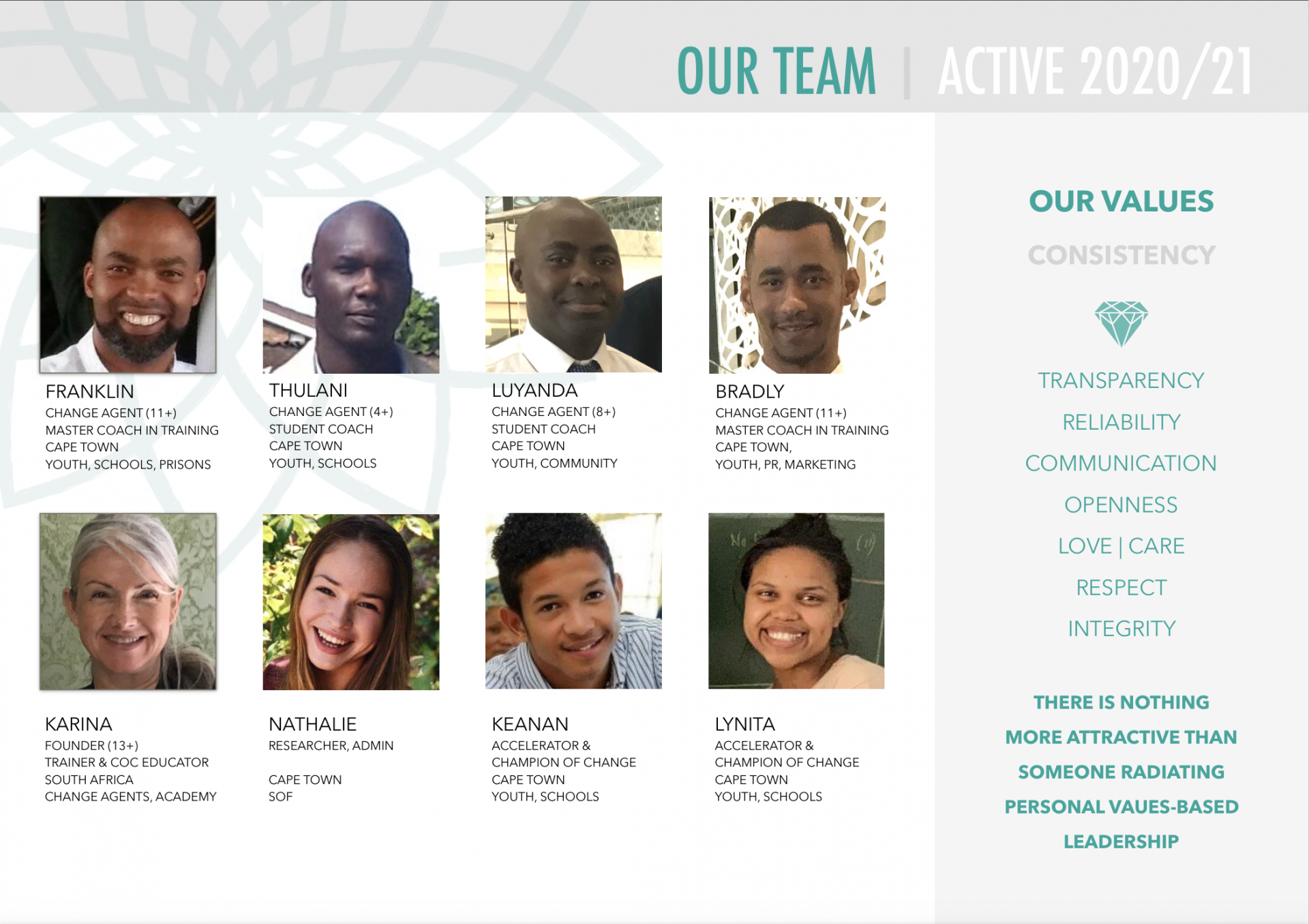
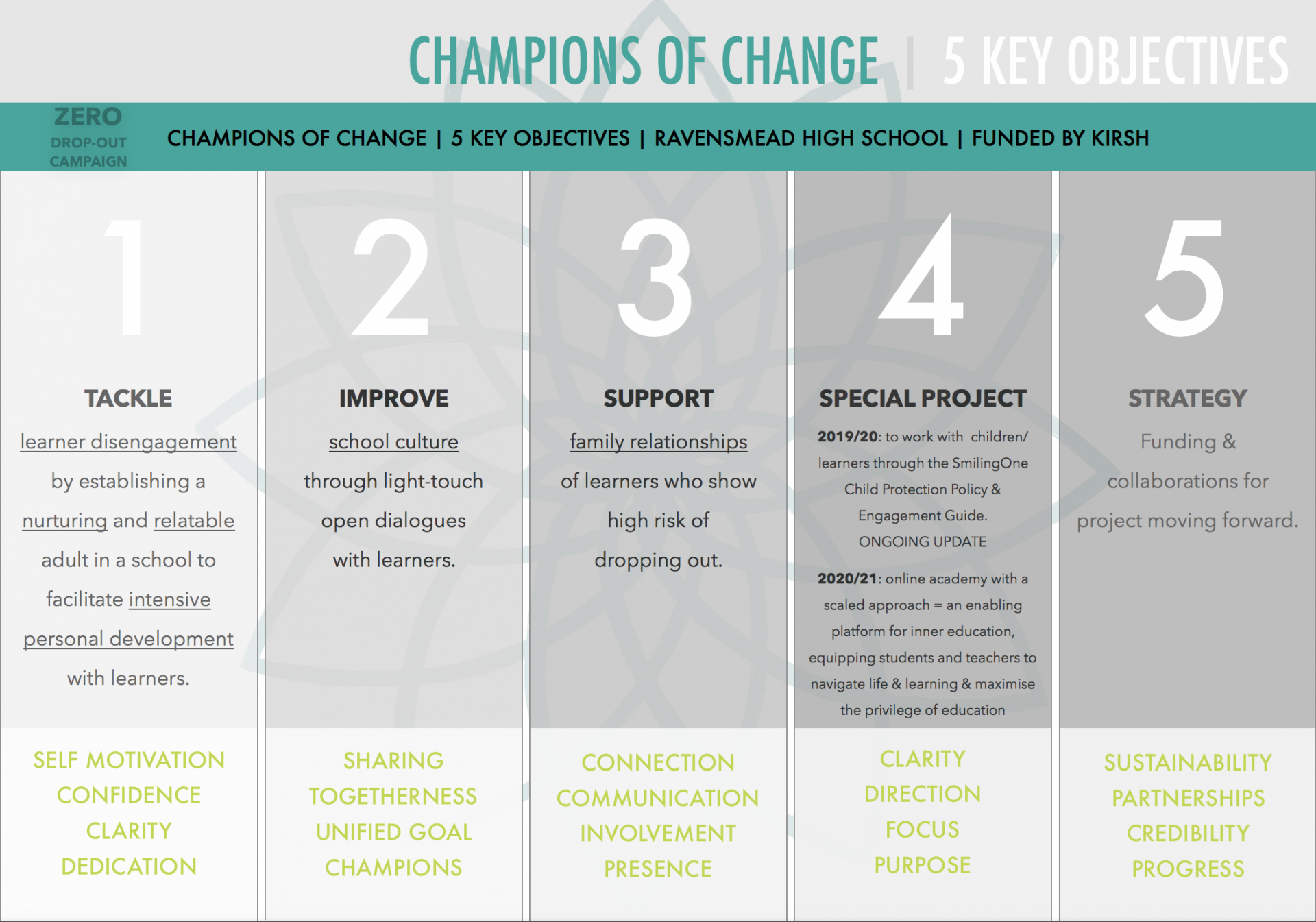
Write your awesome label here.
Write your awesome label here.
Write your awesome label here.
Write your awesome label here.
Write your awesome label here.
Write your awesome label here.
Write your awesome label here.
Write your awesome label here.
Write your awesome label here.
Write your awesome label here.
Write your awesome label here.
Write your awesome label here.
Write your awesome label here.
Write your awesome label here.
Write your awesome label here.
Write your awesome label here.
Write your awesome label here.
Write your awesome label here.
Write your awesome label here.
Write your awesome label here.
Write your awesome label here.
Write your awesome label here.
Write your awesome label here.
Write your awesome label here.
Social Cohesion, Crime Diversion & Prevention
“We are continuously developing as a community. We thrive on shared values, shared challenges and equal opportunities. We walk united in diversity, each one of us knowing that it starts with a better ME (my individual responsibility) for a better WE (our shared responsibility). We are committed and passionate about contributing to the wellbeing of everyone in society. We build bridges instead of walls.
WE ALL OWN A SHARE IN THE WELL-BEING OF OUR SOCIETY!
Consistency
Transparency
Reliability
Communication
Openness
Love & Care
Respect
Integrity
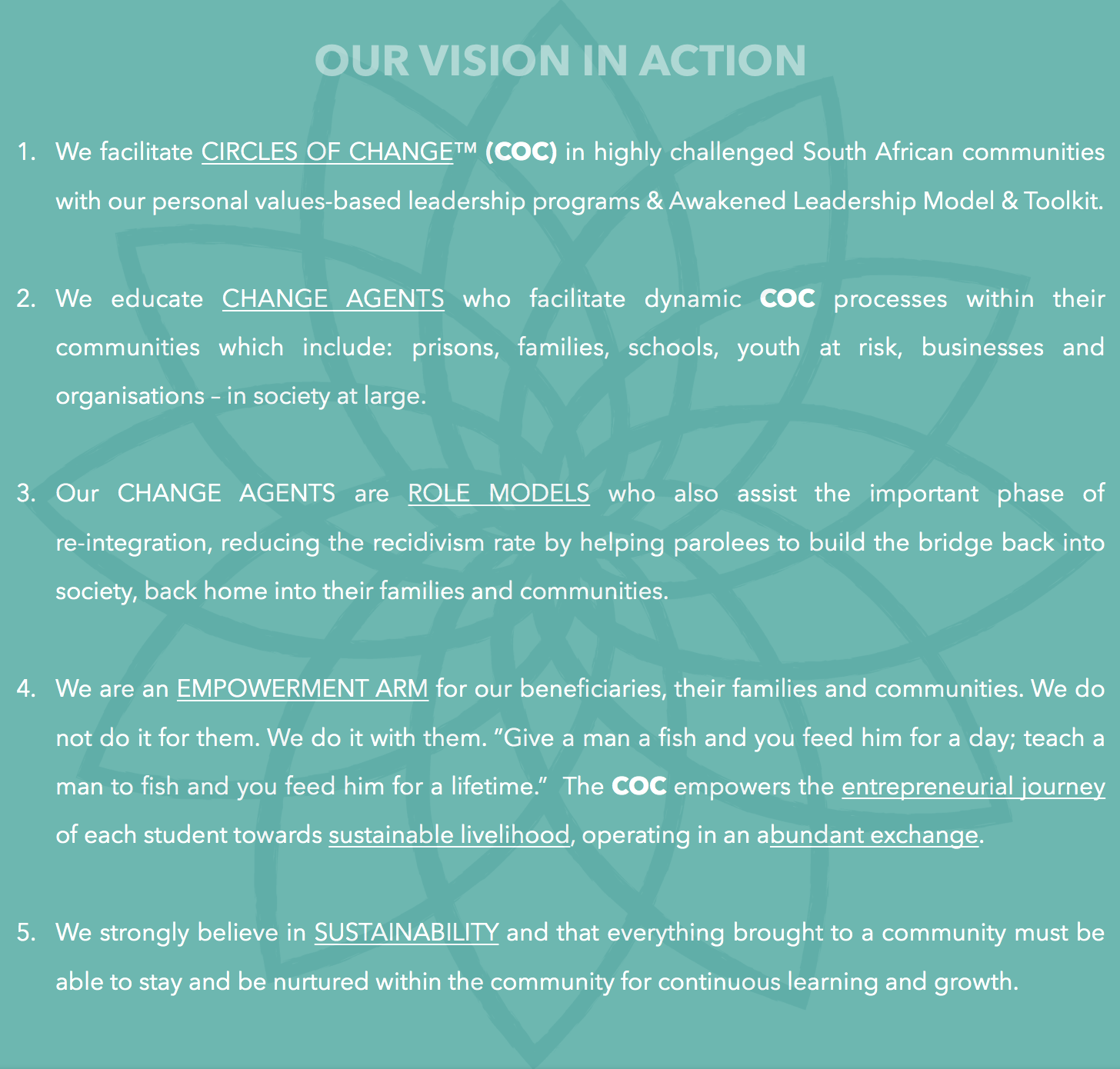
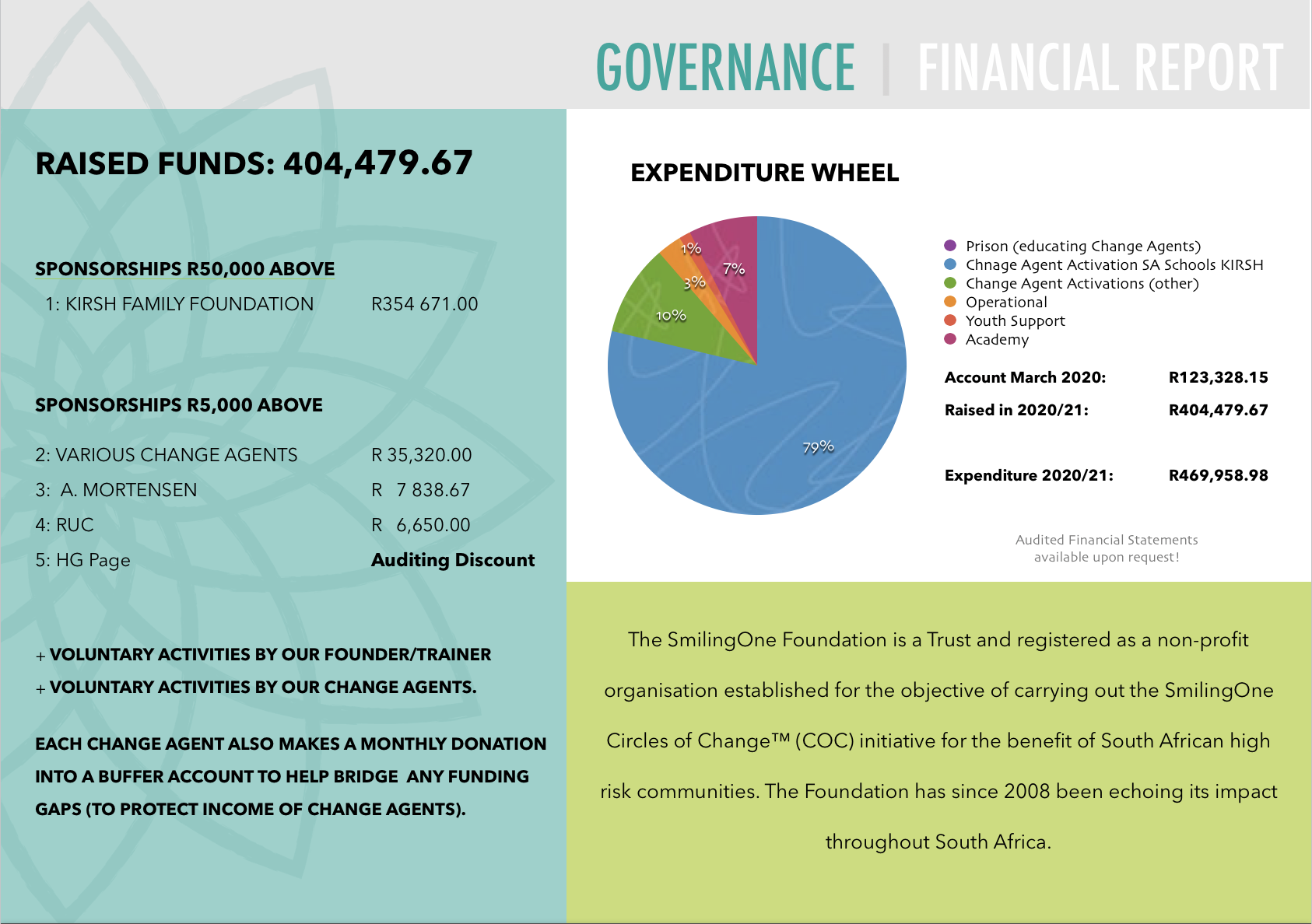
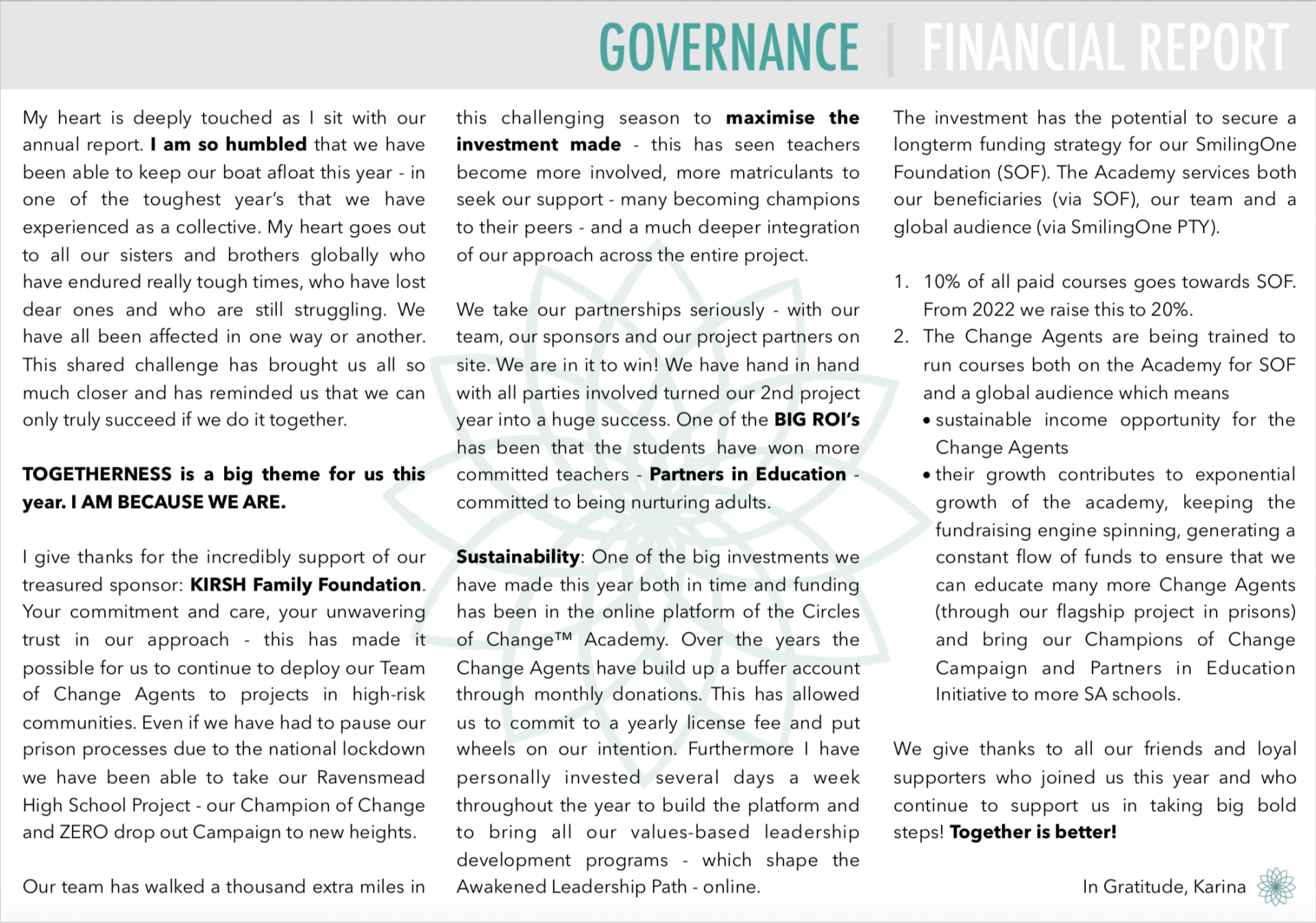
By Manuela Viana - SOF Board Member
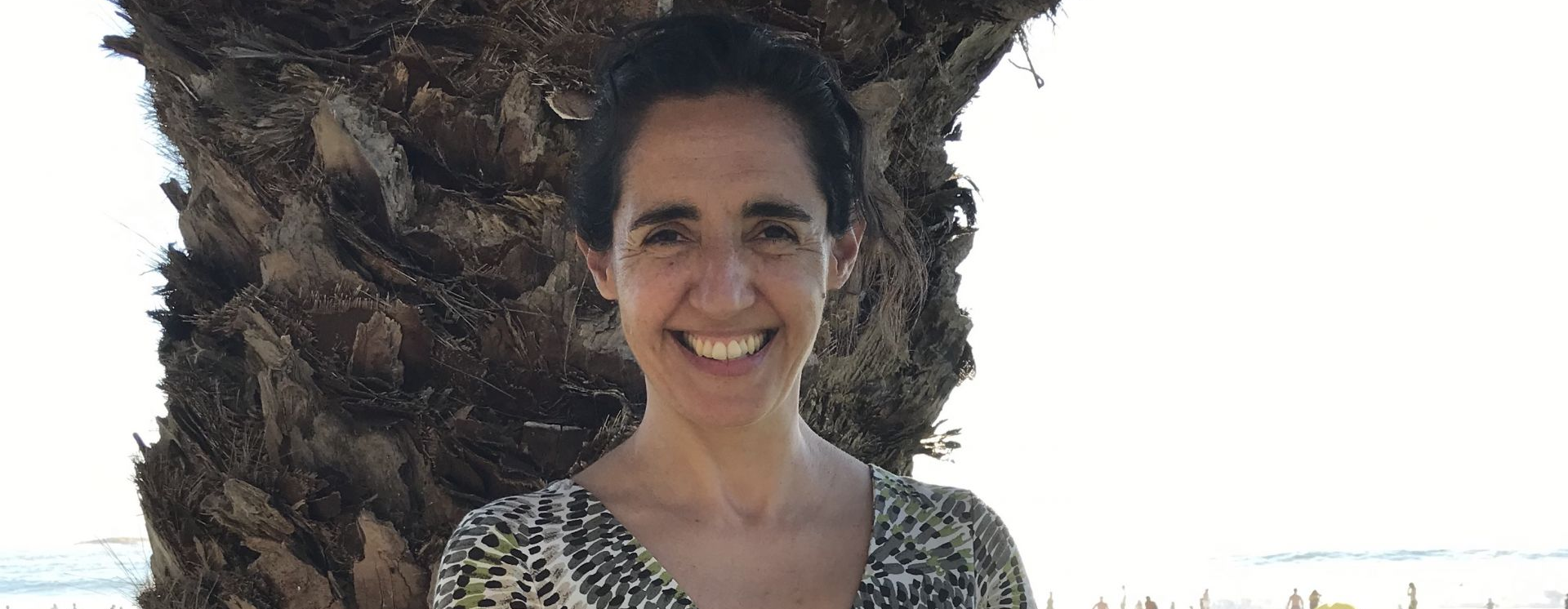
For a lot of people, this kind of raw open vulnerability and authenticity is totally foreign. I am not one of those people. Yet, here I was...utterly blown away, profoundly moved and deeply inspired.
What was it I asked? Why was this particular meeting so different?
I don’t think it’s just one thing. Yes, to the open emotional sharing - some people never experience that in a life-time. Sad, but true. However, there was something more than that. It felt like a very particular context. The context of adult men, having committed a crime acknowledging their wrongs yet extending their bravery a step further – to acknowledge something far more painful…
How they have been let down. Let down by their fathers, their mothers, their families, their communities, the system, life and finally themselves. Why wouldn’t you give up on yourself facing such insurmountable struggle?
And here they sat - with all the weight of that grief looking into the fresh face of a young person - with only one reminder. They can choose a different path. That despite not having what you so deeply need, that despite life taking away from you what you loved the most, you can still choose a better decision for yourself. One decision at a time. You don’t have to give up on yourself just because your environment has failed you.
What a heart-thumping bell to hear!
I cannot imagine what it must feel like to be so young, facing unimaginable challenges, and hearing an adult speak so utterly and directly to all those very-same feelings; words that say, ‘I hear you’ ‘I see you’ ‘I’ve been there’ ’This is what I’ve learnt.’
It is this that makes SmilingOne so utterly unique. That by bringing Change Agents back into relationship with themselves, their communities and specifically, the youth, they offer redemption to both – and the community builds a stronger base. It is this inter-relationship of the power of the individual to heal themselves, becoming the healer in service of others. It is no small task, takes enormous courage, sincere self-reflection, and complete commitment to a purpose bigger than you.
It is not often you come across a self-improvement programme that speaks to such a full circle of development. The emphasis is on ’self’ in improvement. At SmilingOne, the individual's growth and improvement is not separate to the improvement of the whole/community. I remain, astounded.
Of course I wanted to support that kind of endeavour - and so, here I am, as a board member.
This happened to co-incide with the arrival of the pandemic - as if life couldn’t present itself with any more difficulties for people. Overnight, the Change Agents were presented with having to find new ways to remain engaged and inter-active with the students. Not only did they do this, but they stepped up their game! 2020 found SmilingOne’s principles land in the hearts and minds of Parents and Teachers alike - growing an Army of Support that can only contribute to young people creating better lives and better futures. This is hugely significant, because the pandemic stretched absolutely everybody’s resilience. The fact that SmilingOne could offer support to a wider reach is incredible, the impact of which will be felt for a long time. Teachers were particularly placed in a difficult position during the pandemic. It does not surprise me to hear that they want to present SmilingOne’s model to the Department of Education. They needed the support, but more importantly they need the right kind of support and not money thrown at plasters. To hear teachers say they are re-invigorated with their passion for teaching speaks volumes to SmilingOne. You can’t expect a child to learn from someone who is frustrated, exasperated or angry. It doesn’t work that way.
This is not to say that SmilingOne hasn’t had their share of challenges too. As a board we had to navigate losing Thulani to further his studies and re-negotiate our terms of engagement with Bradly who was on a sabbatical. It is with great respect and admiration that throughout both of these processes SmilingOne was able to stick to their core principles, to engage respectively but also to keep the purpose of SmilingOne’s mission at the forefront of their minds - basing decisions by looking at long-term consequences and always with the interests of the students at heart.
Looking back at 2020, what a year! Smiling One has not only achieved its goals but superseded them! What was a community oriented programme has become a global one - seems fitting for a pandemic year?! I have been so impressed and inspired by the level of focus and energy from both Karina and Franklin literally grabbing the bull by its horns and whipping it! You have both gone over and beyond what was asked. Our board meetings every second week throughout the year was a tremendous focus and I believe helped us to stay on track, re-evaluate and attend to the next change of events that seemed to be so common. Yet, in every meeting you brought your humanity, generosity, compassion, openness and wisdom. It’s honestly a true privilege to spend any time with you and I am lucky to get inside tickets!
Karina, you are bountiful in your love and care, focus and commitment. Such attention to every single detail and moment. Your energy and passion is jaw-dropping. Franklin, what an honour. Your kindness and compassion is so palpable, your enthusiasm and generosity infectious. What a phenomenal team, utterly inspirational and exceptional.
It is a no-brainer to me that your work not only belongs in our beloved country, but that the world could have access to its fruits. It would seem so fitting that the Rainbow Nation delivers a programme that brings home the banished to rebuild communities – literally walking in the foot-steps of Nelson Mandela. I think he would be proud.
You are all the living proof of how this is possible. You are the evidence.
If ever the world needed that rainbow of hope to be fully embraced, despite all adversity - the time is now.
Lots of love
Manuela
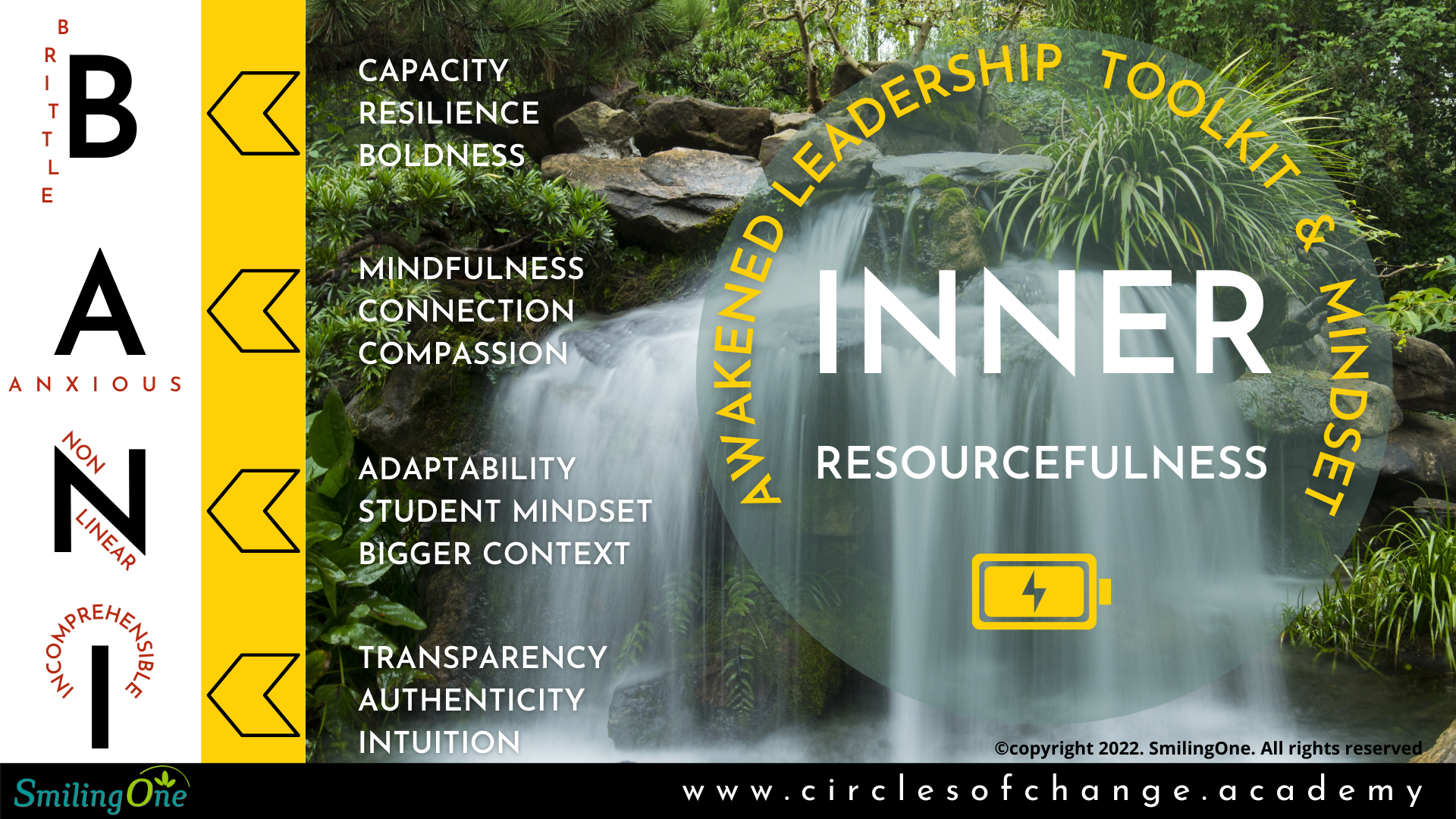
As the Matriculants prepare for the finals we at SmilingOne assist them to build their trust muscles and strengthen their toolkits. We build bridges from anxiety, fear and overwhelm to more TRUST in themselves and the process...
"For 12 years we have gained so much experience. We have all we need to succeed."
The Workshop HIKE on Lions Head was so inspiring and each student walked away with rocket fuel - ready to reach new heights.
Write your awesome label here.
Write your awesome label here.
Write your awesome label here.
Write your awesome label here.
Write your awesome label here.
Write your awesome label here.
Write your awesome label here.
Write your awesome label here.
Write your awesome label here.
Write your awesome label here.
Write your awesome label here.
Write your awesome label here.
MY VALUES
I value Love: I love my children, family and my friends. I always associate myself with people who add value into my life. I also like to spread my love to my community because my community is part of me. By spreading my love to the community I am giving hope to them. I am the love that I want. I am the love that I need. I am the love that I am. For me love is everything. Love puts smile on my face. Love is honest. Love is free.
I value Ownership: I am taking ownership of my life, by doing so I am owning my life and myself. I have ability to stand on my two feet and make right decision. I make right decision without fear or favour. When things don’t go my way I take full responsibility for what I did. I don’t blame other people I take ownership as a responsible individual. I walk the talk
I value Honesty: When I am honest I also attract honesty. When I am honest it means I am not wearing masks, I am transparent and everybody can see me. When I am honest I am free. When I am free I am real. When I am real I am me. When I live my life honest I will also attract honesty. I am running my own race and I am comfortable with it!
I value Respect: Respect begins with me then I pass it over to the next person or other people as well. Surely when I respect myself it is easy to respect other people as well. I choose to respect myself then I will attract respect because I am what I attract and what I give.
I value Relationships: I value protecting my partner because my partner is part of me. I protect my partner with everything I have – but responsibly. I value my partners opinion in our relationship. I don’t care about people who are busy criticising my relationship. I learn from criticism.
I value a Healthy Lifestyle because it is important to be healthy. I believe a healthy body is a healthy mind and a healthy mind is a healthy soul. I look after my body by exercising almost every day. I make sure I eat healthy food all the time and drink lots of water. I don’t do drugs, I don’t smoke and no alcohol abuse in my life. I keep my body tight by exercise and eating healthy food.
I value dreams: I dream because I know where I want to be in life. I strongly believe if I don’t dream it means I don’t know where I am going in life. By dreaming of being some where one day that means I have a vision and potential about life. That is why I value having dream in my life.
I value money: I tell myself each day that I have lot of money and that it comes without much effort. I always remind myself that I am attracting money. I value believing in money. I do whatever it takes for me to feel wealthy. By doing that I am attracting it.
I value forgiveness: Forgiving people is one of my biggest values. I admire forgiveness because when I forgive I attract best things in my life. When I forgive I also give a freedom to the person or people who has done something wrong to me. I believe when I forgive the next person I am also healing the void or wound that has been opened. I always learn something from occurrences so that I cannot repeat the same mistake. Forgiveness gives me a peace of mind, so that I move on with my life
I value affirmations: The reason I value affirmation is because I have realized everything I did started with affirmations. I always do affirmations before I begin to do whatever I want to do . I strongly believe in affirmations although it takes time to notice how powerful it is. When I look back where I came from I realize that these were affirmations and they eventually happened.
KEY ROLES
I am a Parent: I am a father to my daughter and son. I provide for them, support them and give guidance when it is necessary. I love my children more than anything in this world. My children are the blessing into my life. They always manage to put a smile on my face. I can also learn from them. They are the best thing I have ever had in my life.
I am a Friend: I am a friend to everybody, especially those around me. I am true to myself and I share my heart at times. It makes me feel good to share my ideas with friends. I believe in being honest and treating each other with mutual respect. I always try to be around people who add value into my life.
I am a Believer: I strongly believe in God. I always ask for his guidance before I do anything. I believe if it wasn’t for him I wouldn’t be here and breathing. God is amazing!
I am a Provider: I use money wisely by providing for my family and those who are my responsibility. I also help relatives and my friends.
I am an Entrepreneur: I enjoy being my own boss and doing a meaningful work. I like being the person who brings new ideas to start a new business. It is always a good thing to create opportunities for people.
I am a Man: I am a person, who respect other people. As a responsible man I take care of my family. I take care of my woman and my children. I make sure they are protected all the time. I always show them some love! I am a Leader: I lead by example. I have vision and goals to achieve. I am not a dictator. I share ideas with other people.
10% of all income via the online academy is donated to SOF to bring personal values-based leadership programs to high risk areas.
SOF's focus: crime prevention, crime diversion and social cohesion.
Active projects
- schools
- prisons (paused during pandemic)
14 YEARS OF TRANSFORMATION
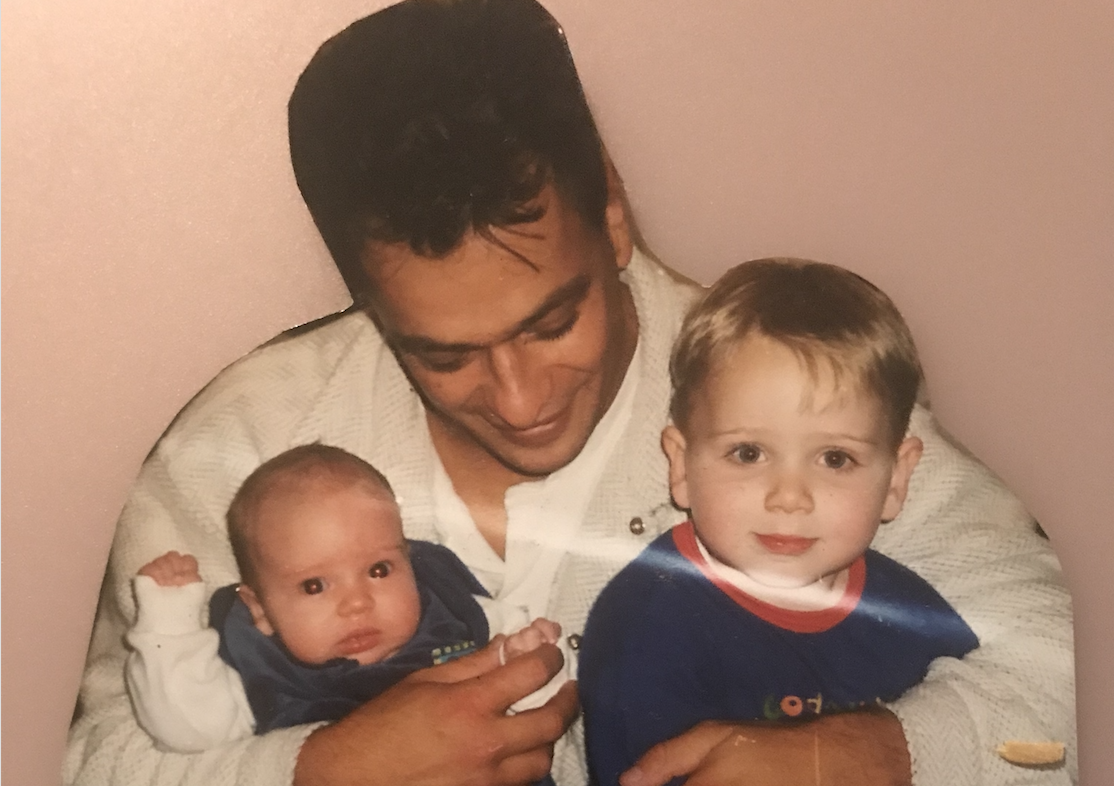
In 2002 our Founder Karina Andersen lost her partner (the father of her children) in a car accident. This catapulted her onto the first stage of her healing journey.
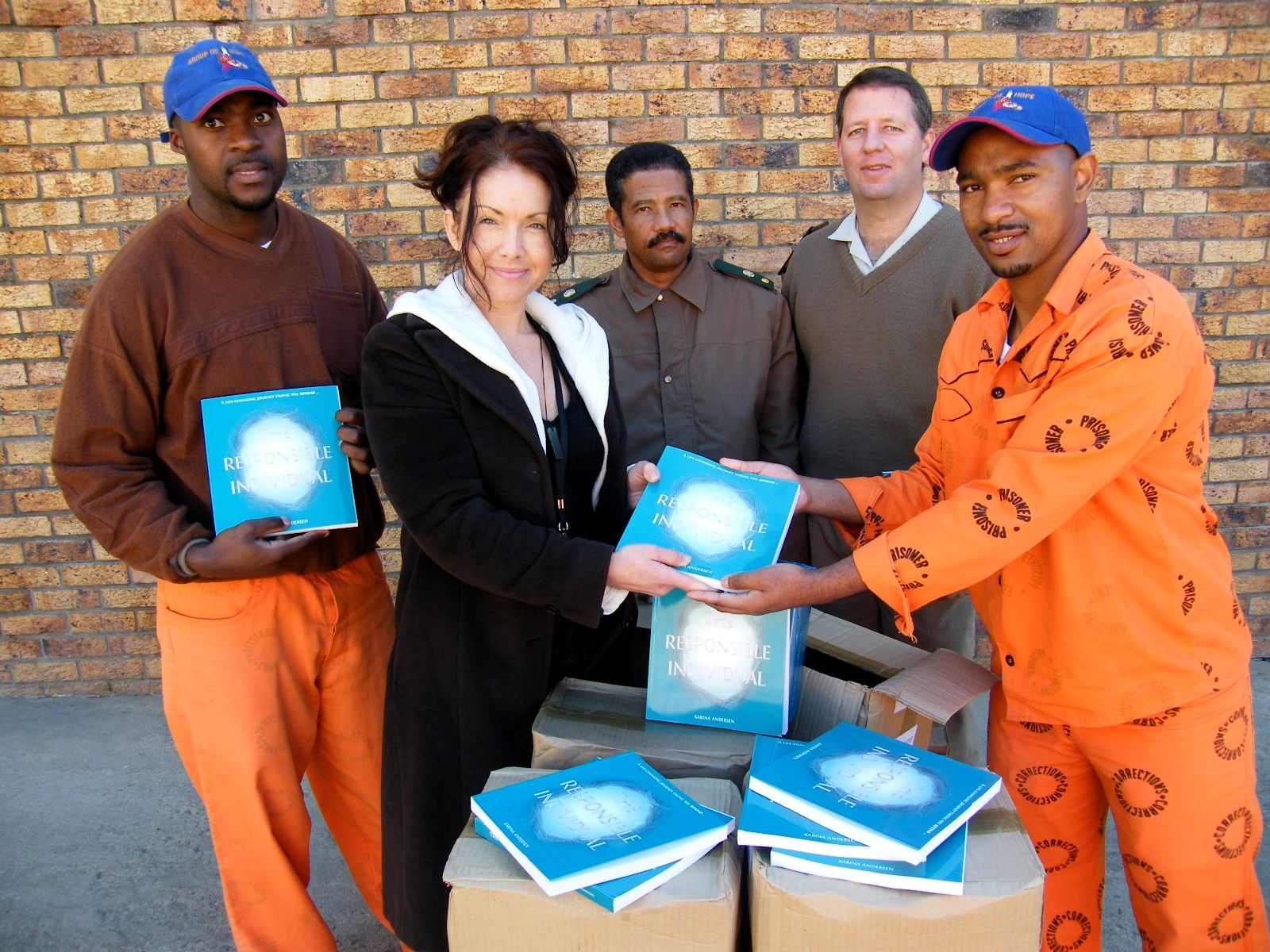
Our depth coaching methodology shaped in the FIRE of a Journey. Karina authored our TRI Manual and published it in June 2008.
2000 copies were printed and donated to the SmilingOne Prison Processes (sponsor: ABC Press).
In the first couple of years the prison project expanded like wildfire. Karina ran the TRI program in 7 prisons in the Western Cape, South Africa. Pollsmoor Prison become the 8th process a few years later.
Karina found these raw diamonds inside prison - the Change Agents in the making - they were gradually being polished through our Circles of Change™ Educational Engine and deployed into projects within their high risk communities upon reintegration.
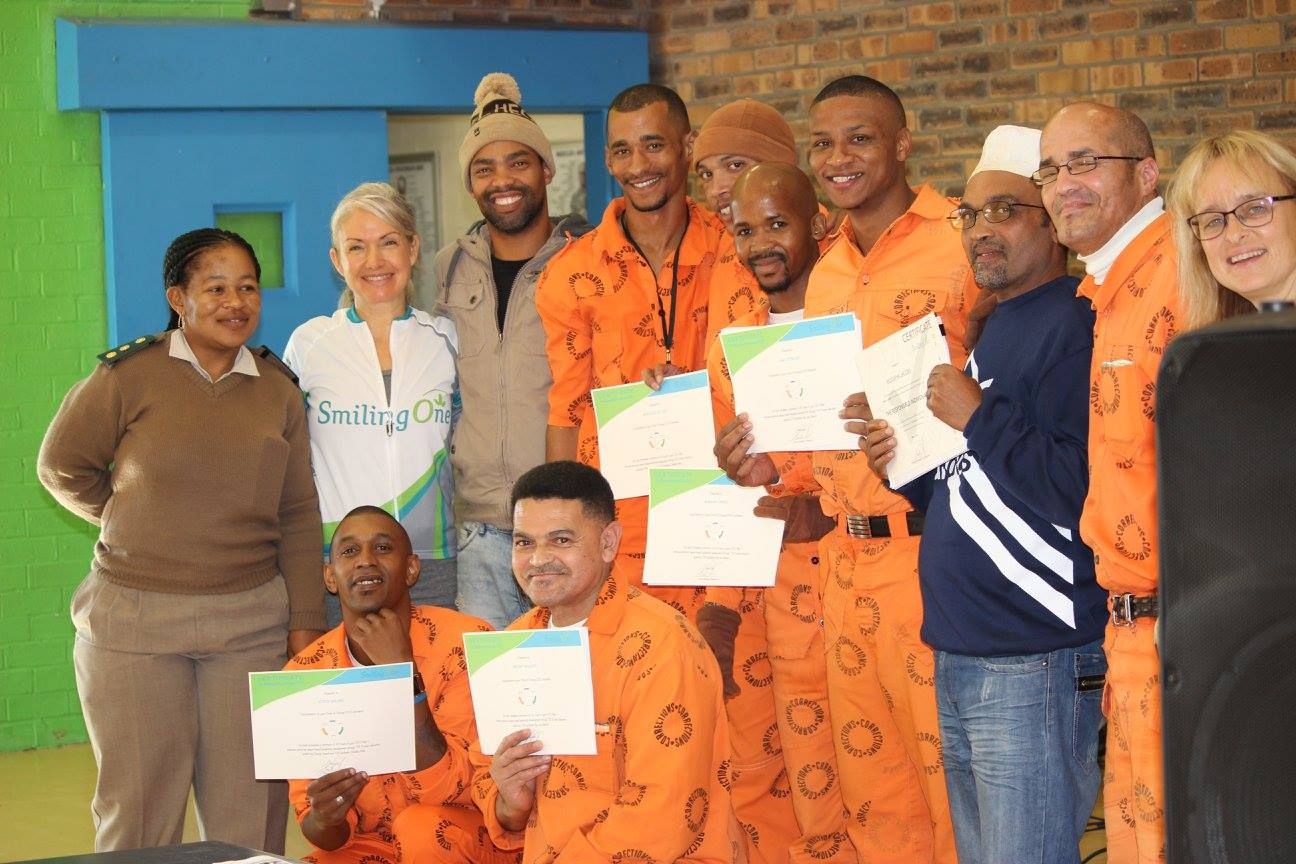
The 3 pillars of our COC Educational Approach came ALIVE inside South African prisons between 2008 - 2013.
- Sharing Practice
- Caring Practice
- I am a Resource Practice
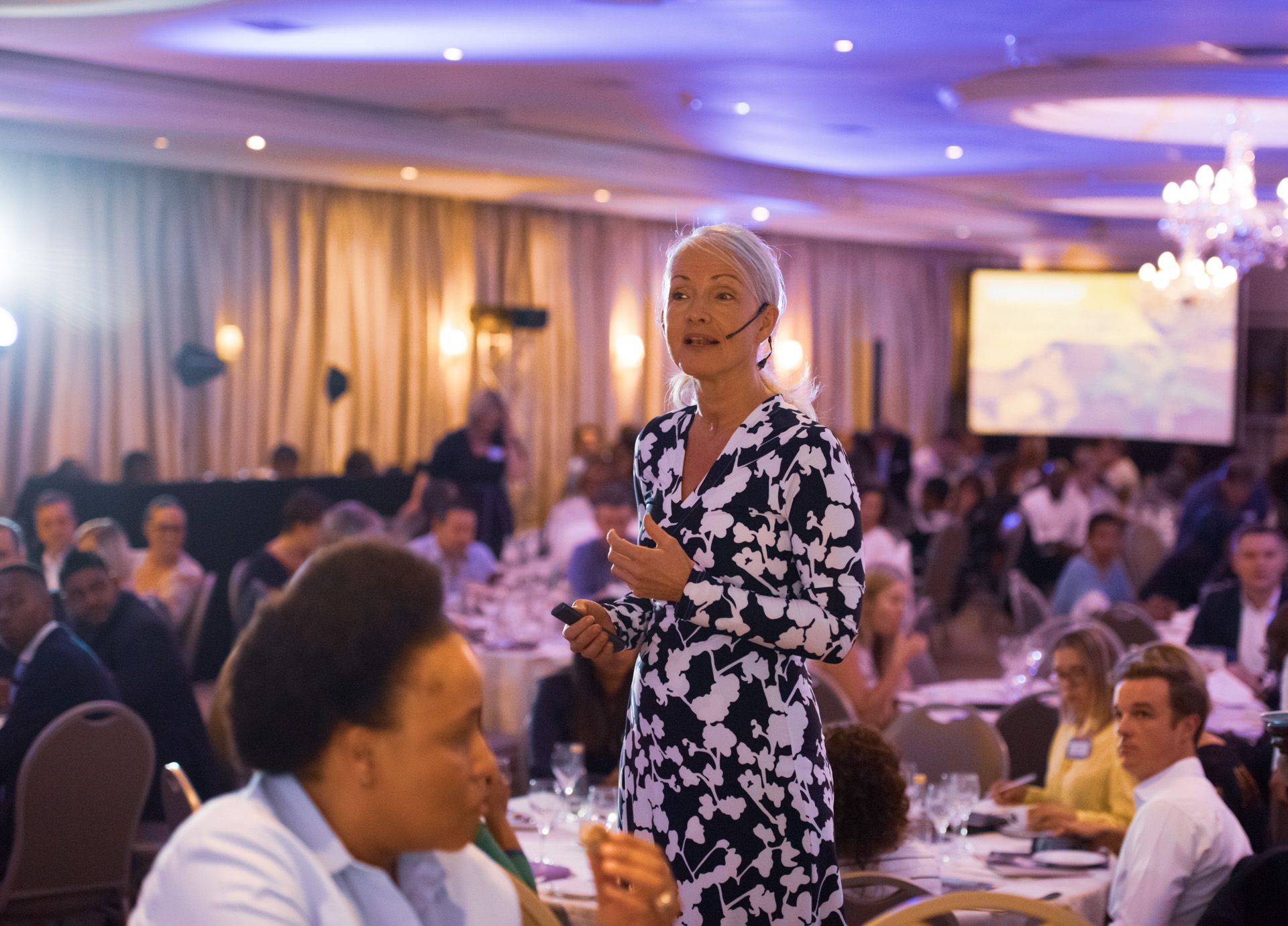
Our Awakened Leadership Model shaped over another 8 years (2013 -2021). It is the culmination of 14+ years of transformational journeys and bringing personal values-based leadership development into different environments:
- prisons: since 2008
- boardrooms/corporate: since 2012
- journeying with families, schools & youth since 2013
- journeying with leaders, coaches & entrepreneurs, building high performance environments & toolkits since 2012
A unique recipe that allows for both healing & active development.
- Initiation: RECLAIM YOUR POWER (RYP)
- Foundation: FIT4RESPONSIBILITY (TRI1)
- Integration: AWAKEN LEADER WITHIN (TRI2)

Since 2008 we have been educating Responsibility Coaches & Change Agents - we call them TRAVEL COMPANIONS.
In 2020/21 we have brought our coach training online to service both SOF beneficiaries on a larger scale as well as a global clientele.
THE TRAVEL COMPANION becomes versed in The Responsible Individual™ (TRI) Depth Coaching Methodology and walks THE PATH of Awakened Leadership - equipped to meet clients in a deeper field of exploration.
Join our global team of coaches & change agents.
BY FRANKLIN ESAU - CHANGE AGENT & PROJECT LEAD

with LOVE, Franklin
AN ACCELERATOR IS AN AMBASSADOR OF THE SMILING ONE PROGRAM
End of 2020 we initiated our Accelerator Program to help build the school culture.
5 Matriculants of 2020 joined SmilingOne in an Intensified program - keen to explore.
We had a 2 day workshop in December to work through our engagement guide, child protection policy and their own journey (filling gaps).
The aim:
(1) to assist SmilingOne in our drive to bring our program to more Students
(2) providing them a bridge between Matric and their next step (education, job).
Going into February 2 Accelerators remained and assisted with Exposure to Students. They helped us boost our familiarity with Students - being walking billboards (evidence) of our process. A wonderful way to fly our flag high.
The result is that more Students have chosen to recommit/enrol in our project for 2021. We have also seen interest from 2021 Matriculants.
The Accelerators speaks highly of the SmilingOne program and the support it gave them during their final year.
SmilingOne's Grade 12 focus has also boosted the confidence of School Management - allowing us to work with Matriculants in groups/classes in this new year (2021).
Such a beautiful morning at Ravensmead High School celebrating the women at the school... teachers and students... leaders of today and tomorrow... we gifted 300 roses as a welcome back to school and a token of appreciation for these beautiful gifted women showing up for their education.
We tasked the young men at the school to write the notes for the flowers.
We treasure our partnership with the school and look forward to supporting them in this stage of more learners returning to school.
We at #SmilingOne provide the very important puzzle piece of inner education... this allows learners to maximize on their school career... understanding the inner as well as the outer environment so much better ... a TRI Toolkit equips the students to navigate life and learning...
Write your awesome label here.
Write your awesome label here.
Write your awesome label here.
Write your awesome label here.
Write your awesome label here.
Write your awesome label here.
Write your awesome label here.
Write your awesome label here.
Write your awesome label here.
Write your awesome label here.
Write your awesome label here.
Write your awesome label here.
Write your awesome label here.
Write your awesome label here.
Write your awesome label here.
Write your awesome label here.
Write your awesome label here.
Write your awesome label here.
Write your awesome label here.
Write your awesome label here.
It is a privilege to share with you SOF'S YEAR 2020/21 in a creative and innovative way via our Circles of Change™ online Academy. It showcases how we as Team have leveraged the challenge of the pandemic, shifted gears and taken our approach to the next level.
We are grateful for the incredible support by our sponsors and loyal supporters in a very difficult year. We could not have done it without you!
It has been an important season for us. We have used the challenge of the global pandemic as an invitation for growth and expansion - it has been a stepping stone to bring all our teachings online. As we continue to stretch ourselves we are excited about the opportunity to bring our personal values based leadership programs to many more people in high-risk communities.
We can't wait to get back into prisons - our flagship program - and equip them with our elevated offering, educating an army of Change Agents.
I am deeply touched by the impact of our Champions of Change Campaign & Partners in Education Intervention at Ravensmead High School which has been our main focus in 2020/21 - thank you to all students, teachers and parents for your incredible efforts. It has been a privilege to partner with you through one of the toughest storms in many years.
We have the deepest respect for you!
with LOVE, Karina
Karina Andersen
FOUNDER
FOUNDER
I am Luyanda, a Change Agent of SmilingOne. I am a father to my daughter, a son to my Mom and a Servant to my community. A humble person who loves people and nature. I love peace. I have peace in my heart. I am a kind and caring person who loves to be surrounded with honesty, trust and humility. I am a responsible person and take things with understanding. I know I am in charge with any actions I am doing.
DESCRIBE YOUR DREAM
My dreams is to try to change the perceptions of people - to have a positive attitude - to try to make people understand that challenges are there to teach us and to build us to be better people. I invite people to embrace the storms of their lives.
WHO WAS LUYANDA AS A CHILD?
I was vulnerable and frustrated as a child. The way I was raised. I witnessed wildness in front of my eyes. It was a big trauma to witness the violence.
As I became a teenager - due to all those challenges in my life - I expressed myself through drugs. I thought that was how I was going to take the sorrows and emotional pains away. I ended up joining the hustle life. The guys that I was involved with - we related to each other due to the challenges that we were facing. They shook us in different ways because we had different backgrounds. At times we would fight each other so badly that we even ended up in hospital. We were using drugs thinking we would be healed. But we were worse off than before. The main objective was to hustle money. Some of the guys are still serving long time in prison. I was one of them. My upbringing has made a huge huge scars inside of me.
If I could visit little Luyanda I would tell him to take care and to build communication in friendship - to try to understand. At times he rises to the surface. He is the one with those past experiences. There are times when he challenges me. I am in this new path of my life. I work on it whenever he arrives. I have to be humble and embrace him. It is very important.
WHAT HAS BEEN SOME OF YOUR BIG BREAKTHROUGHS?
When I joined the Circles of Change™ of SmilingOne in prison - in Brandvlei in 2010 - I experienced a huge breakthrough. It was fascinating and scary. At times - the guys were sharing deep emotional challenges, that they were facing. It was very touching - the sharing of their past experiences in our session. It ended up opening up my old wounds. Old wounds were breaking - it was as if it has happened yesterday. I was taken back to those guys I once associated myself with. The funny part was that the sharing in the group and the sharing of my old experiences - it was different. In my life of hustle you are not allowed to cry. We had boundaries. We had rules we had to bow to and comply to, in order to survive in the hustle of life. You don't show weakness. We were very defensive. But this sharing inside prison - in our SmilingOne Sessions - to see a man cry - it was something I could not believe. We shared things we don't share with our own families. This was my biggest breakthrough that touched me - it gave me the space and courage to cry. I was really motivated. It has made me to be curious, to want to come more and to be surrounded with this energy. The men in the group were older than me. I never thought you could plant a seed in concrete! The perception I had was that seeds grow in soil not in rocks. This process has given me the strength to not be ashamed of myself or of my past. The sharing in those circles were powerful. The power of change in 2010.
Years has gone by and it has given me the thirst to engage myself more in SmilingOne's Circles of Change™. The growth and the maturity - the understanding of the journey and of myself. The reason why challenges are there. It has been amazing!
WHEN DID YOU START THE PURSUIT OF YOUR DREAM?
It happened when I became equipped with my SmilingOne tools - The Responsible Individual™ Toolkit. My tools have shaped my thoughts and the way I engage myself with my surroundings. My tools have moulded me and guided me. Now I am having these tools. They have helped me to put things into practice. The challenges I face every day - because I am equipped with tools - I know the challenges are not obstacles of my goals and dreams.
WHAT IS YOUR ADVICE FOR THOSE IN PURSUIT OF THEIR DREAMS?
My advice to others is to be honest with self - be very humble! Swallow your pride. Take ownership of your actions. Stop making excuses and doing the blame game. You must be in charge of your life as the captain of your own ship. You must be willing to change and to be patient with yourself.
When you work towards your dreams it needs you to be disciplined and to be consistent! Be in competition with yourself only and not with others.
You must learn to say no and live a life according to your own approval and not of others. Learn to stand firm yourself and most importantly - learn to affirm. It is one of the most powerful tools - when you affirm it means you are pointing to yourself.
